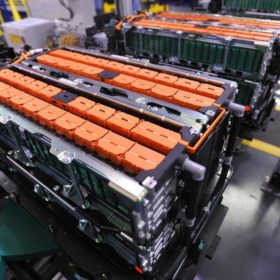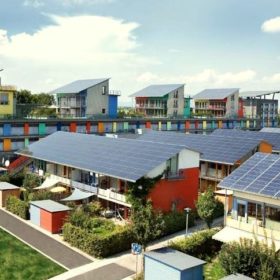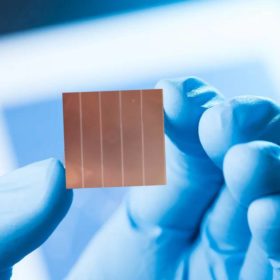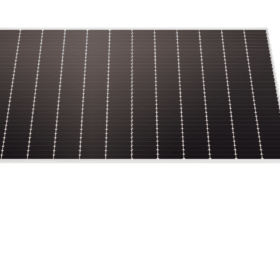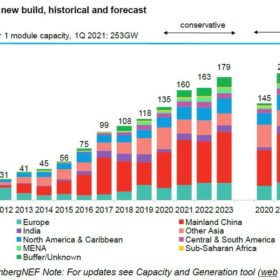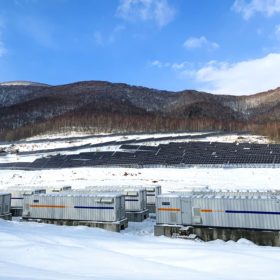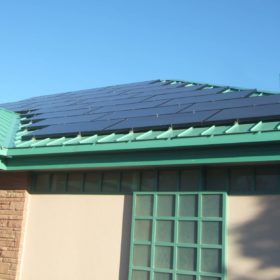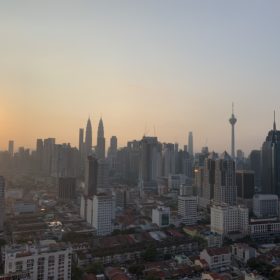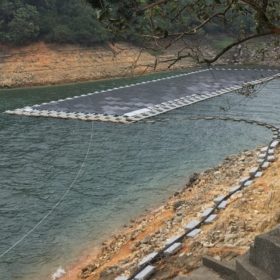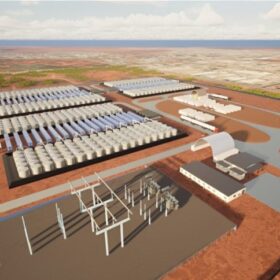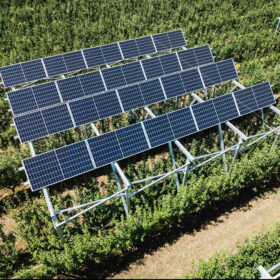Novel nanomaterial to replace graphite in lithium-ion batteries
Porous nanostructured microspheres made of copper, iron, and iron oxide were used by an international research team as negative anode material in lithium-ion batteries. The new technique is claimed to provide three times more capacity than batteries based on graphite anodes.
In the mind of a residential PV system owner
Scientists in the Netherlands have identified five different profiles of homeowners that have installed or could install rooftop PV systems. According to their findings, substantial differences characterise the five segmentation groups. The research is intended to help policymakers and solar companies to better promote PV technology among potential new adopters.
Perovskite solar cell with cesium-titanium dioxide nanotubes
A global research group has developed a perovskite PV cell with titanium dioxide nanotubes doped with cesium. It purportedly offers better short-circuit current and power conversion efficiency than cells without cesium nanoparticles. They say it has optimal thermal stability under temperatures up to 800 C.
New shingled PERC solar module from Hyundai
The South Korean manufacturer has brought, to Europe and Australia, its recently launched shingled PERC panel, with an output ranging from 460 to 480 W and an efficiency of up to 20.5%. The products come with a 25-year linear power output guarantee and a 25-year product guarantee.
BloombergNEF expects up to 209 GW of new solar for this year
A new report from the U.S.-based analyst predicts that new PV additions for 2021 may range from 163 to 221 GW next year and from 179 to 240 GW in 2023. According to BloombergNEF, the current supply bottlenecks for glass and polysilicon will unlikely halt the global PV market.
Solar-plus-storage as an antidote to grid congestion in Japan’s northern island of Hokkaido
Chinese inverter maker Sungrow has switched on a 6 MW / 21 MWh solar-plus-storage facility on the island. The FIT project’s connected AC capacity is limited to only 845 kW, but the containerised storage solution provided by the company ensures its viability.
Flexible heat pumps ideal for power grids congested by solar and wind
Dutch transmission system operator Tennet, which also serves Germany, is planning to create flexible electricity demand and reduce grid congestion by promoting the use of smarter heating systems and heat pumps that can also be powered by solar and wind energy. According to its experts, intelligent control of heat pumps may result in the creation of between 0.5 and 1 GW of temporary grid flexibility by 2030.
Malaysia to allocate another 500 MW of rooftop PV under net metering
The NEM 3.0 program will run until the end of 2023 and will see the participation of residential, commercial and industrial prosumers as well as public entities and government ministries.
Boeing brings more PV power to NASA International Space Station
Six new arrays with a combined capacity of 120 kW will be installed on the International Space Station starting from this year. The panels will be brought to the station with the SpaceX Dragon cargo spacecraft during three resupply missions. The installation of each solar array will require two spacewalks.
Large scale floating PV to sell power at $0.0368/kWh in Indonesia
A new report from the Institute for Essential Services Reform (IESR) shows that PV has not been growing significantly in Indonesia in recent years, despite the size of the energy market and economy. According to its authors, however, there are multiple paths that can be followed to bring volumes into all market segments. Large scale solar is expected to play a major role in the years to come, as the LCOE for big floating projects is approaching levels close to those of more mature markets.

